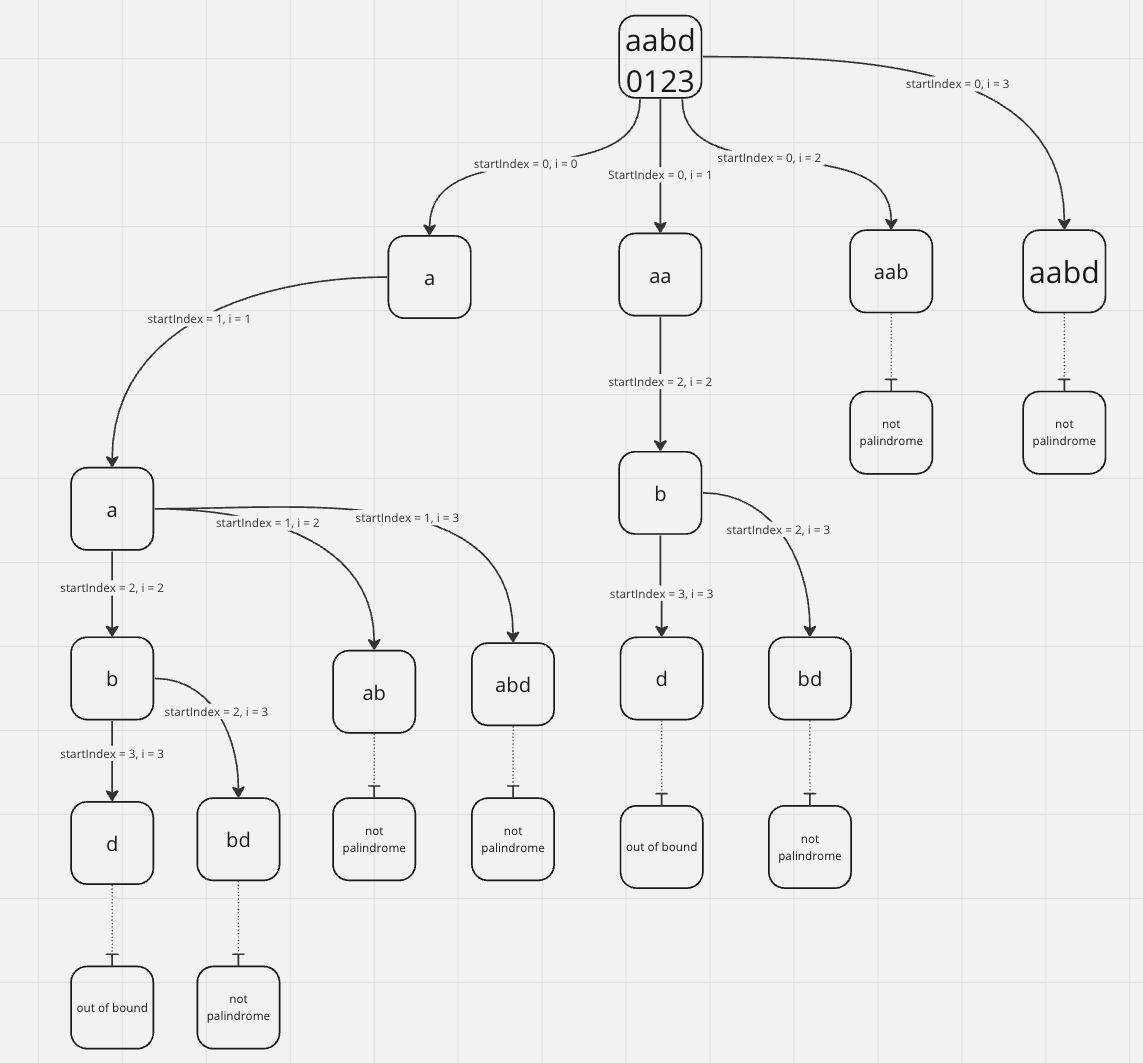Palindrome Partitioning
Question
Given a string s, partition s such that every substring of the partition is a palindrome. Return all possible palindrome partitioning of s.
Example 1
Input: s = "aab"
Output: [["a","a","b"],["aa","b"]]
Example 2:
Input: s = "a"
Output: [["a"]]
Intuition
For this question, it's pretty hard as the pattern needs to be modified a bit from other regular backtracking.
For example, consider the string aabd. We know that our base case should be:
a,a,b,d
So that give us a hint of a for loop from 0 -> len(s) to start. And then we just have to follow this branch out tree:

So if it's a palindrome, we going to explore, otherwise, we don't and stop.
Implementation
class App:
def partition(self, s: str) -> List[List[str]]:
self.result = []
self._partition(0, s, [])
return self.result
def _partition(self, startIndex: int, s: str, tmp) -> None:
if startIndex >= len(s):
self.result.append(tmp.copy())
return
for i in range(startIndex, len(s)):
if self.isPalindrome(s, startIndex, i):
tmp.append(s[startIndex : i + 1])
self._partition(i + 1, s, tmp)
tmp.pop()
def isPalindrome(self, s, start, end):
while (start < end):
if (s[start] != s[end]): return False
start += 1
end -= 1
return True
Time complexity: $O(n^2 \times 2^n)$
- We have $n$ length in a string. We have to loop through it: $O(n)$
- For each substring, we need to check for
isPalindrome, worst case is $O(n)$- So the two above combined in the for loop is $O(n^2)$
- Each one, we need to go through a
chooseornot choosefornlength, therefore it's $O(2^n)$
Space complexity: $O(w \times n)$
wis the average length of temporary list